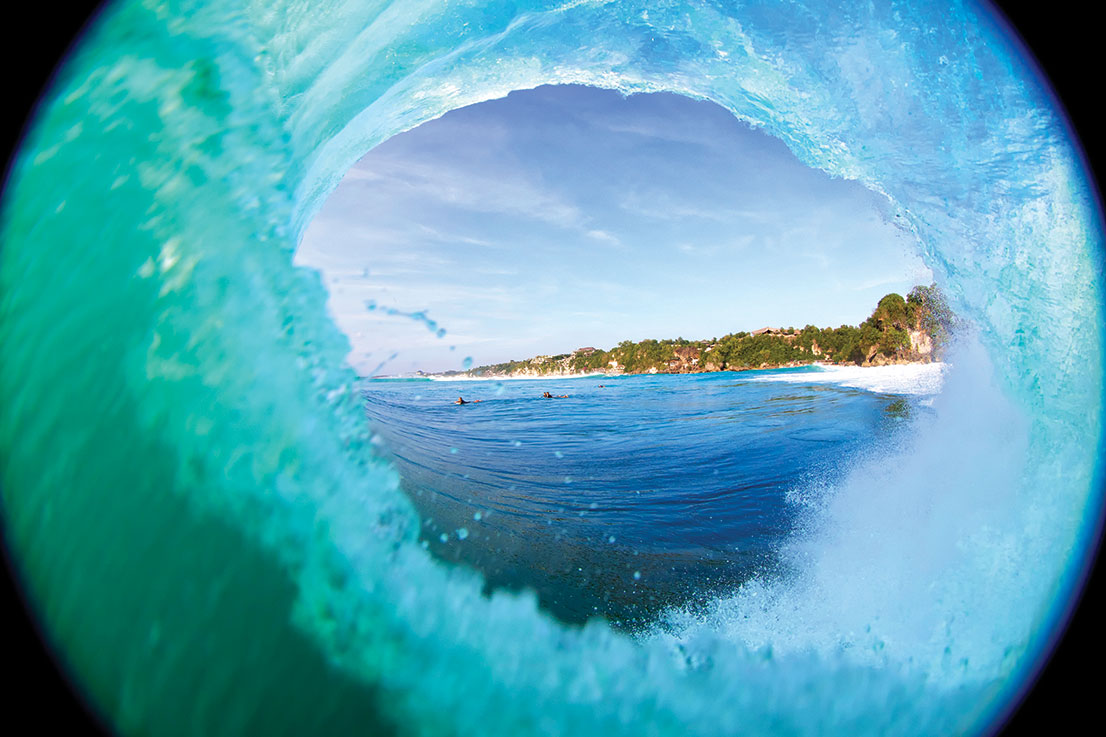Make Public Speaking More Fun. Step #1: Paddle Through The Blank Page
This is the first in a series of three pieces on getting your speaking up to speed.
 Palm trees and hammock-lined sands had become terrifying in seconds. My wade into waist-deep water turned into a torrent that was now pulling me into the crushing waves.
Palm trees and hammock-lined sands had become terrifying in seconds. My wade into waist-deep water turned into a torrent that was now pulling me into the crushing waves.
Just offshore from my new favorite place in Parque Tayrona, Colombia, I was swimming for my life. As I struggled against the current pulling me out to sea, the palm trees were getting further and further away. I was starting to swallow water. Suddenly, an idea popped into my head, something a lifeguard told me when he pulled me out of the waves in Southern California when I was 13. “If you want to escape a rip tide, don’t swim back to the beach, swim parallel.”
This counter-intuitive. Especially when the body is saying, “Get to safety!”
As my vision of the beach started to narrow, I turned. Between the waves, I swam in fits of five or ten strokes to make my way parallel to the beach. The change was shockingly quick: after about thirty seconds, I was suddenly back in waist-deep water. The rip tides were so strong they had shifted the entire sand structure of the beach, making it like hills and valleys. I walked out safely and was back under the palm trees in minutes.
I don’t spent a lot of time on the Caribbean coast anymore. But I do help people paddle through the dangerous waters of speech preparation. You think I’m kidding – this is the stuff of nightmares even for the most confident. Humans evolved not because we were the strongest or fastest, but because we could work well with others. Collaboration was key to our survival. And being kicked out of the clan was as good as kicking the bucket. So I supposed there’s a good reason why public speaking consistently shows up at the top of the ‘greatest fear’ rankings. The social pressures are different, but the pull to deliver still lives in our bones.
Here’s the problem: The pull of possible options and the immense data that you have to choose from can instantly push you further and further out to sea, and you can end up in a paddling flurry against a flood of possibilities.
One of my clients used to lock himself in his office for days when beginning a speech, only to face increasing pressure and emerge each day further away from shore. Another would put it off for weeks and weeks – then she’d prep everything the night before in a mad flurry. Yet another would delegate nearly all of the process, going only ankle-deep for fear of losing his ground – and then feel completely inauthentic on stage.
The tide can be wild – but it’s common – and knowing how to ride it well can turn a scary day into a powerful one. So I want to offer a few pieces of advice as you face the rip tide of an impending speech:
1. Take your time before you get in.
Assess the waters. Begin sketching simple ideas a month out. Just a half a page. Ask yourself some questions: Where are you, and where are they? Meaning: how do you feel, what do you need, what would success feel like? What do you really want to say, at the bottom of all of it? Secondly, where are they? Where is your audience, what do they need? Where are they on their journey, and what might they need to get to a different place?
2. Think of where you most want to go.
What is your most essential message, the single most important thing you want to convey? Not the three most important. The one. Establish this as a key point around which you can pivot. Build your journey around this.
3. Swim parallel! Stop fighting the tide; it will take you further out.
Take an open moment to consider your wider landscape. If you get stressed, come back to the basics; stop going up against the tide. Explore your story repertoire to find an insight or lesson that might help you land your message. Did you experience something surprising recently that might be relevant? See if you can frame it into a story that depicts the change you’d like to reveal, and consider a metaphor that might help you frame this change. Fill in your key information and data in a way that supports the story, instead of contending with it. Don’t worry about getting there quickly. Get there safely, and with a strong ending.
Finally, once you’ve got a way to get your feet back on solid sand, you’ll begin to work with the powerful waters instead of fighting them. Then you can get up, catch your breath, and carry this idea back to the beach and try it out. Talk out the ideas in conversations, or with a story buddy that’s open to a little free form discussion – someone who gets that the waters can be rough out there.
Please report back with what works for you! I’m Jay at Retellable.